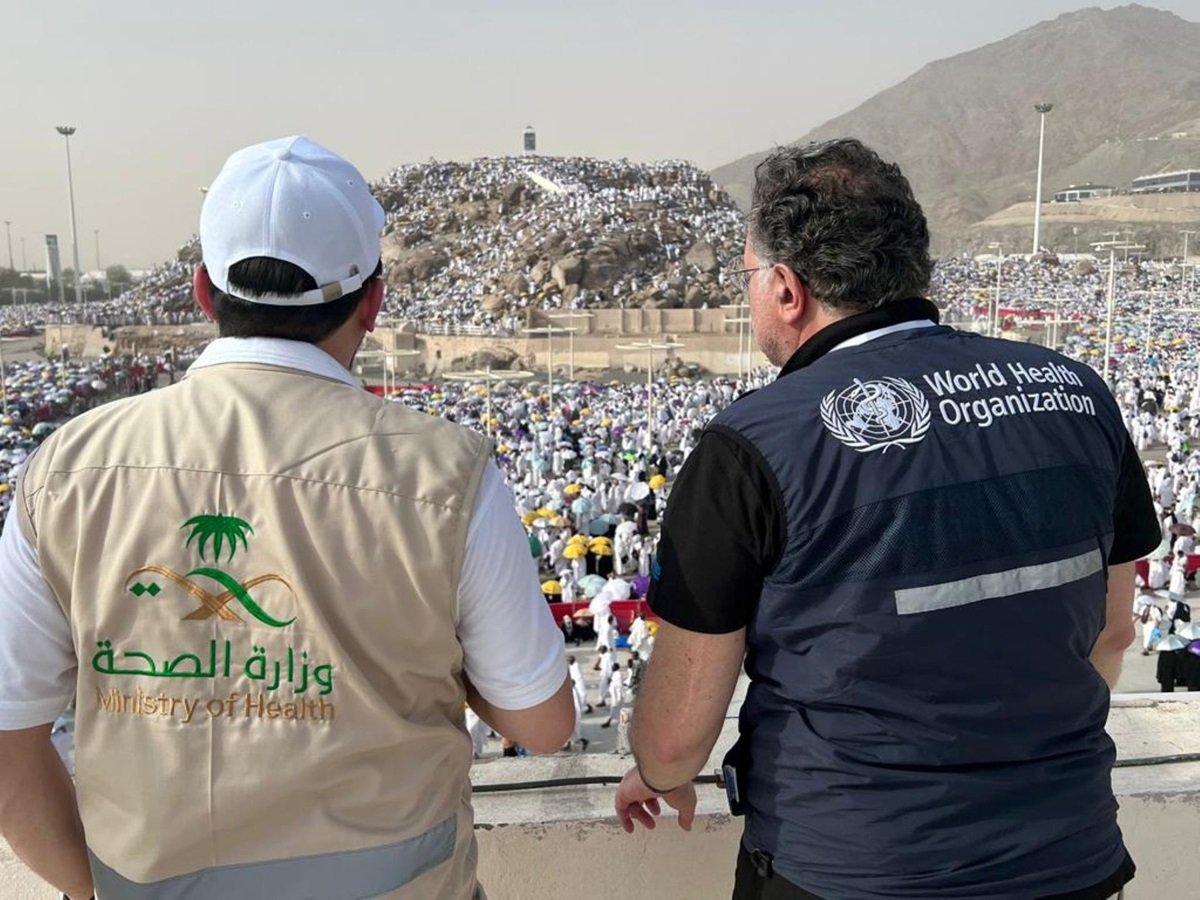The World Health Organization (WHO) and the Kingdom of Saudi Arabia today announced a new milestone in digital health collaboration: the expansion of the Hajj Health Card initiative to support the approximately three million people who, each year, participate in this sacred pilgrimage.
The Hajj health card, which uses the public key infrastructure of the WHO Global Digital Health Certification Network, contains, in summary format, essential health information, such as medication needs or allergy information, vaccination status and pre-existing diseases. This card will allow people traveling to Saudi Arabia to maintain control over their medical history and, if desired, give healthcare providers access to accurate and up-to-date summary information about the patient and obtain personalized care. quality.
«This development that we are presenting today represents a notable advance in the support that WHO provides to Member States to expand access to safer, person-centered digital health tools to improve population access to health care. quality health when and where they need it,” said Dr Jeremy Farrar, WHO Scientific Director. «We want to thank the excellent collaboration with the Kingdom of Saudi Arabia, the participating countries and the WHO Regional Office for the Eastern Mediterranean and we hope to continue supporting the development of capacities and infrastructure in countries that are opting for increasingly health systems. increasingly digitalized.
The Hajj is the largest pilgrimage in the world, bringing together nearly three million people from more than 180 countries each year. More than 250,000 pilgrims from three countries, Indonesia, Malaysia and Oman, received the Hajj health card in 2024 under a pilot collaborative project between WHO and Saudi Arabia. During this experimental phase, these three countries demonstrated that they could use global standards to issue their own national versions of the card, thus improving the security and quality of care for pilgrims participating in Hajj.
WHO and Saudi Arabia agreed to continue collaborating to improve and expand the successful Hajj Health Card pilot program. The expertise and support of the Saudi government and its digital implementing partner, LEAN, will improve data security and provide essential technical support to other countries joining the Hajj Health Card programme. .
“This exciting partnership between the Kingdom of Saudi Arabia and the World Health Organization to expand the Haj health card initiative improves the safety and well-being of millions of pilgrims,” said Dr. Hanan Balkhy, Regional Director of the WHO for the Eastern Mediterranean (EMRO). “Thanks to digital health solutions, we strengthen the quality of care and help strengthen health systems, both in the Eastern Mediterranean region and around the world.”
Eighty countries have joined the WHO Global Digital Health Certification Network
WHO launched the WHO Global Digital Health Certification Network in 2023, building on fruitful collaboration with the European Union and other countries to promote COVID-19 vaccination certificates. The Network currently includes more than 80 WHO Member States that have equipped themselves with systems to verify the authenticity of health information, based on a new global ISO standard: the International Patient Summary.
The Network uses a robust public key infrastructure (PKI) encryption system that allows health credentials to be verified and stored securely, so that national authorities and healthcare providers can certify the credentials. authenticity of health documents issued by another country without the confidentiality of people’s information being compromised.
The initiative aims to create, in the future, a digital health system that allows people to carry internationally recognized health credentials, which will facilitate travel and improve access to health care. This will make it easier for people to access and control their health information, and they will be able to choose and decide what data they share when seeking care at home or abroad.
Entering the WHO certification network allows countries to reduce administrative processes, which results in the efficiency of border controls and expands the information that professionals have access to during health consultations. The global network lays the foundation for long-term improvements in international health collaboration, and could in the future be used in a variety of situations, such as cross-border e-prescribing, insurance and even telemedicine.
